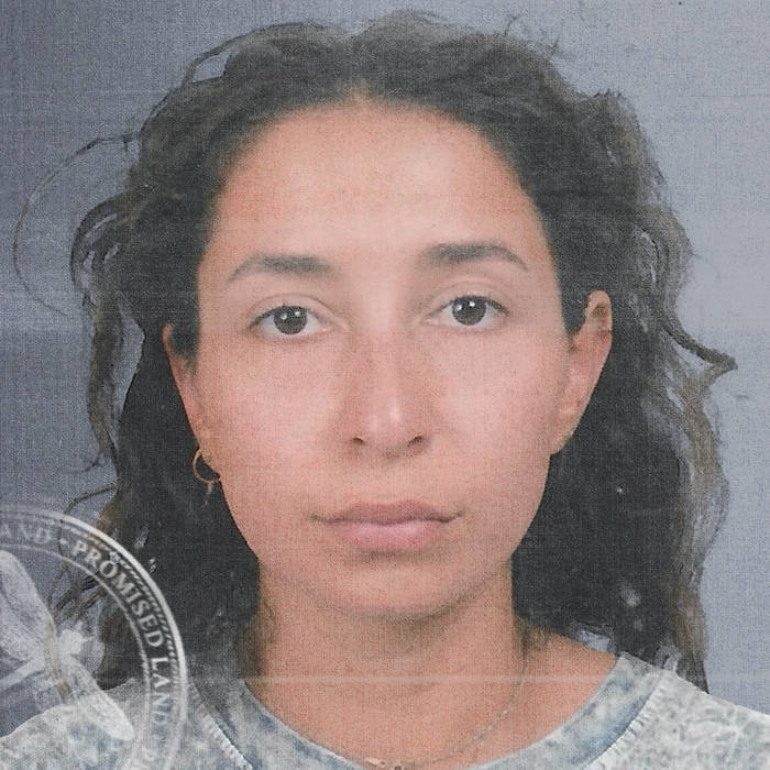

In her debut album, Promised Land, Wafia invites listeners into her memory of an oasis past, hitting her stride with lush production and forays into R&B.
The solo project of queer Iraqi-Syrian singer-songwriter Wafia Al-Rikabi, Wafia released her first of four EPs in 2015 but broke out in 2018 with her platinum-certified Louis the Child collaboration “Better Not.” Netherlands-born and Australia-based, she found further success with electro poppy collaborations with international artists and producers like Masego and Ta-ku.
Promised Land expands beautifully on Wafia’s shorter outings. She uses the free room of an LP
to spread out and closely render a sensory world; the opener “The Summer Was Sweet,” is a fuzzy overture that lays the listener in the sun-dappled summer garden of Wafia’s memory. Track 2 “Vision of Love” colors in the daydream, invoking peaches and apples, staying green, and picking seeds in its evocation of the titular vision, a sudden memory of a past fling.
So follows Promised Land as a whole, as much about a place as the love that transpired there.
Wafia has written that the record is “a project about transition, distance, and immigration,” and the record’s most intriguing elements are those that lushly render an oasis lost or left. On “Mulberry Tree,” Wafia likens her love life to harvesting fruit, singing, “I cut you loose to cut fruit before it could fall,” and “I’m learning leaf by leaf, big changes happen slowly.” The instrumentation is an even better painter: production on “Dragonfly” sounds so much like still water rippling under a dragonfly that it verges on onomatopoeia.
But per the artist’s focus on “distance,” that world is a memory: Wafia is reminiscing. Her removal from the affair in question is unmissable. In addition to the nostalgic film over the album, throughout it, Wafia exhibits the calm contemplation of someone who has meditated extensively. She sounds easy, languid, and floating, so much so that by the album’s back half, some tracks demand just a bit more variation, build, or catharsis. (Enter album highlight “Sad Shit,” which brings forth all the vitriol Wafia’s been holding back behind gauzy curtains.)
The best of those dreamy tracks, like “Dragonfly,” evoke Raveena. The album’s poppier fare, meanwhile, is skippable: “Background” sounds 2000s-inspired in the same way as Soccer Mommy’s “Circle the Drain.” The driving guitar beat and sugar pop of “Big Thoughts” clashes with Wafia’s spacious voice and echoes legions of other indie pop songs. “Distant” seems to be a Lauv song. Wafia can succeed within the sorority electropop industrial complex — see her 2019 disco romp “I’m Good” — but not in this promised land.
Her voice shines in a palette somewhat new to her on this record: contemporary R&B. By the end of the album, hearing a thudding beat at the start of a song is a welcome delight: a heavier beat balances out the airy, lo-fi timbre of Wafia’s vocals immaculately. “Something” is beachside and harp-filled. “Say It To The Moon” sounds grounded, moonlit and gorgeous. (And shows Wafia’s range more than anywhere else in the album, lilting from her roomy resting tone to a lovely falsetto) In these tracks, Wafia is in conversation with the fantastic Amber Mark, another songstress incorporating the natural into her lush sound.
Promised Land is just what a debut LP should be: a venue for a gifted artist to build out a world in which to deepen her sound and dabble in new ones. In Promised Land, Wafia near-fully immerses listeners in that world, waxing nostalgic for an earthy, aquatic, lush, and dreamy debut.
